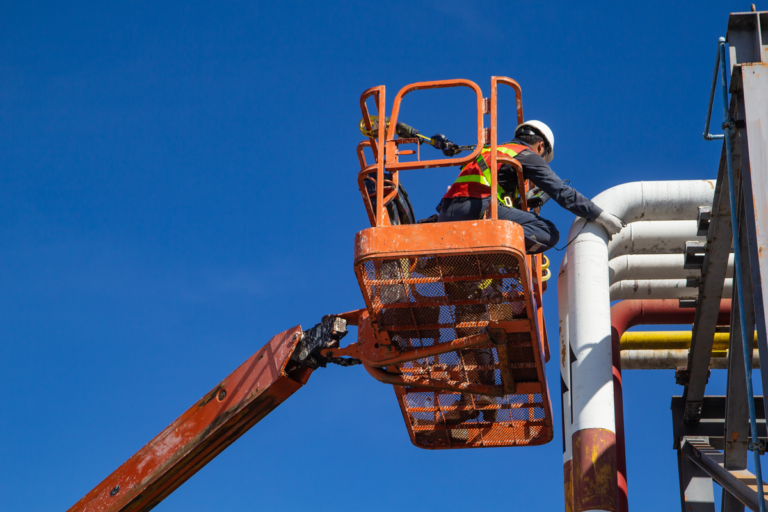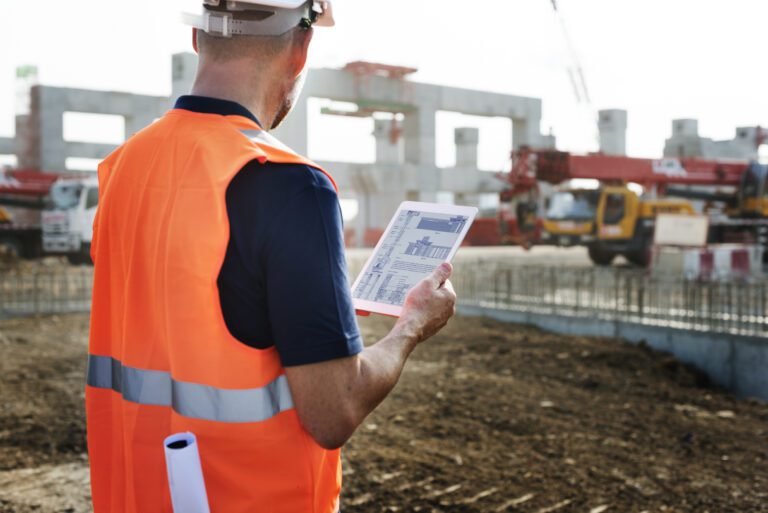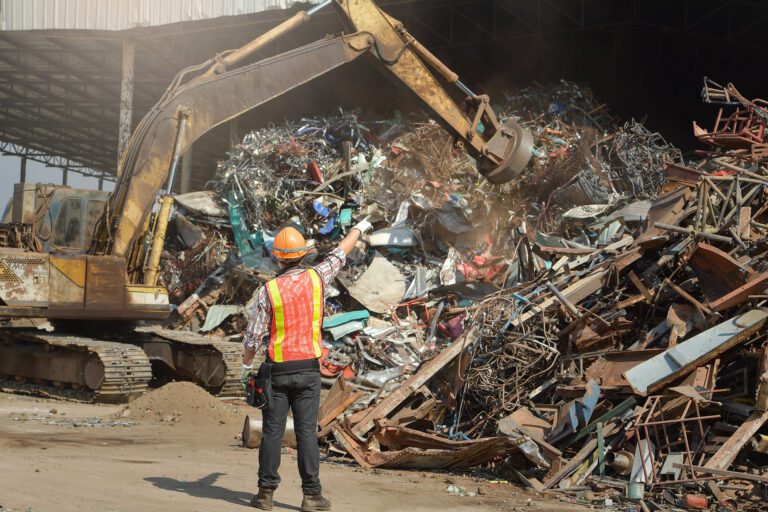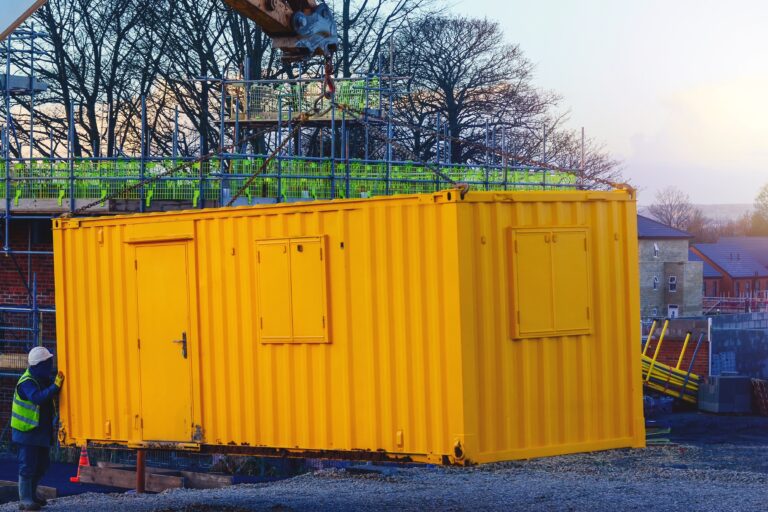8th February, 2022
What is PASMA Training and How Is it Different From IPAF Training?
PASMA training ensure anyone using a mobile access tower is correctly trained. We explore why PASMA training is important & how it differs from IPAF training.
PASMA training and IPAF training, both integral training programmes needed to meet Working at Height Regulations, but are so often confused with one another. This makes it difficult to decide on which course is the right one for you.
Knowing the difference between a PASMA training course and an IPAF course is essential, especially for construction managers who need to work out who can access what on site. This ensures the safety of workers and anyone located in the surrounding area.
The two involve working from high places, yes, but one involves working with mobile scaffold towers, while the other covers mobile elevating work platforms – which includes everything from cherry pickers to scissor lifts.
Can you tell which is which? It’s not a problem if you can’t, as we’re going to cover PASMA training in full, and where it differs from IPAF training.

What is PASMA Training?
Many refer to PASMA training as ‘the scaffolding course’ as it typically covers the assembly and erection of mobile access towers – towers that are pretty common in a wide range of construction projects.
PASMA stands for the ‘Prefabricated Access Suppliers and Manufacturers Association,’ otherwise known as the nationally recognised body for mobile access towers safety and training.
These towers have no power running through them. Still, they require the right type of certification in order to put them together – a PASMA certificate and photo card, to be specific. You’ll need to complete the PASMA course first, of course, before these are issued.
The courses themselves consist of a theory test alongside practical training which is followed by a practical assessment to monitor your abilities of erecting and dismantling these metal towers.
PASMA training typically covers everything you need to put these pieces together, but also how to move and inspect mobile access towers to know when it’s safe to use, and when it isn’t.
Here’s the full list of what’s covered within a standard PASMA course:
- PASMA code of practice
- EN1004:2004 product standards
- Assembling towers
- Repositioning towers
- Dismantling of towers
- Best practice for fall protection
- Hazard awareness
We should point out that different courses will often cover different areas of PASMA training. Not every course you come across will cover the above. This is simply an example of what they might cover.
That being said, almost all of the PASMA courses we’ve come across do deal in assembly, inspection and dismantling.
Where Can I Complete PASMA Training?
You’ll find courses near you no problem, with countless options to pick and choose from at this current time. Most of the courses available last a day, although there are some that run for half a day maximum.
In terms of cost, courses range anywhere from £100 up to £150 depending on where you go to get your PASMA card. This card will last for up to 5 years as standard, which is the same for PAL cards, otherwise known as an IPAF licence. After that 5 years is up you will be expected to then run the course again for your card to renew.
Unlike other forms of training, PASMA courses will almost always include a real world element, as you’ll be expected to erect your own mobile access towers in front of the person running the session.
It is possible to fail PASMA training, either at the written assessment stage or when it comes time to assemble your tower. If, for whatever reason you do fail, know that you can keep going back to try again. However this will be at an additional cost.
Who Needs to Conduct PASMA Training?
Anyone that needs to use a mobile access tower should conduct PASMA training as standard. Understanding how to assemble, inspect, use, adjust and dismantle these portable access towers has countless benefits in that it protects you when when you operate it, as well as others around you.
Ideally, construction managers should also be taking this course, as other workers will often look to these figures for guidance and answers when on site, or on the clock.
Managers, supervisors, and workers, all have the capacity to take part in one of these courses and gain all the necessary skills needed to operate height-orientated equipment. It goes without saying, but if you work at height, generally, then you might want to consider getting your PASMA training card.
Again, they last for 5 years and add an additional layer of security to the projects you’re working on for you and your team.

What is IPAF Training?
So, we know what PASMA training is, where you can complete it and who needs to conduct it, but what about IPAF training?
One of the best ways of understanding IPAF training is to think of it as the older brother of PASMA training, or at least the evolution of it from a technology standpoint.
IPAF training is catered more towards operators, users, demonstrators and instructions who use mobile elevating work platforms (MEWPS). Like the PASMA training scaffolding course, IPAF training focuses on safety and efficiency when near equipment that involves working up a height.
The IPAF course could be considered a lot more complicated because it involves operating machinery, however, personal preference might say otherwise.
One of the main differences between IPAF training and PASMA training, is that the former deals in equipment that can scale much greater heights.
For reference, our Diesel cherry picker has a working height of 43.1m, which is far greater than your standard access tower. We know that not every project will require the largest work at height equipment, but it’s still worth mentioning.
This is one of the differences between a PASMA scaffolding course and IPAF training, but in the next section, we’ll be looking at more.
The Differences Between a PASMA Course and IPAF Training
Before we cover the differences, we should probably look at the similarities between the two courses – most of which we’ve already covered above. The most obvious similarity is that both involve keeping everything safe when using equipment that involves working at a height.
Here’s another: PASMA cards and IPAF licences cover you for 5 years at a time, you can also fail each course multiple times and try it again multiple times before receiving your licence. There’s no limit on how many times you can fail before eventually passing.
Another similiarity is how both courses have a physical requirement alongside a written one, requiring a certain level of research and study ahead of time.
Okay, let’s now shift focus to look at more differences.
Variations in Training
What do we mean by variations in training exactly? That’s simple: there are a lot more variations to standard IPAF training compared to PASMA training.
There are various IPAF training courses out there that are exclusive to all types of machinery, each as different as the last. A cherry picker IPAF course is a lot different to a scissor lift, for example, whereas most PASMA courses are rather similar to one another, maybe with the odd tweak here and there.

PASMA Training is Often Cheaper
Having come across various clients that have licences in both, we know that PASMA training is a lot cheaper than the alternative, just not by much, but enough to count as a difference.
On average, a PASMA training course sits at the £150 price point. Your standard IPAF training course, on the other hand, is priced around £180 on average, although this price can differ depending on where you conduct the course.
Most training centres set exclusive rates, making it pretty difficult to find an IPAF course for a much cheaper price. Speaking of difficulty, there are differences in that area too.
IPAF Training is Tougher
Difficulty-wise, IPAF training is known to be a lot tougher than PASMA training, which was always to be expected, given the type of machinery used and what you need to remember (this applies to both the written part and the physical part).
While a PASMA course can be complex in terms of what you have to remember, it pales in comparison to its work at height counterpart in terms of complexity.
That being said, some might find that it’s the other way around, as with PASMA training you are expected to assemble your own access tower, which could prove difficult.
Course Duration Differs
Course duration is the final difference we want to bring your attention to, as in how long you need to spend on each course in order to finish it. Can you guess which takes longer than the other?
If you guessed IPAF training then congratulations, you win. Some IPAF training courses can go on for 2 days, whereas PASMA courses typically run for a day, if not half a day – a notable difference indeed.
What is PASMA Training and How is it Different From IPAF Training?
We hope that we’ve stressed the importance of PASMA training to you, and how it differs from IPAF training. After all, knowing the difference between the two is vital, as it helps you determine the right one for you based on the type of machinery/equipment needed.
Similarities were also mentioned alongside the differences, to give you a better understanding of why PASMA courses are so often muddled with IPAF training.
Differences-wise, IPAF training will pose a greater challenge based on the complexity of certain equipment.
Keep in mind that how long it takes to complete your training also depends on if you pass the first time. If it requires multiple goes, then, by that logic, you’re more than likely going to spend more time working on IPAF training courses.
No matter which course you choose, YardLink can supply you with everything you need to get your projects up and running (emphasis on the up). We supply all kinds of mobile elevating platforms and mobile scaffold towers fit for a variety of projects – all available in multiple unique sizes.
Get in touch to learn more about what we can offer you!
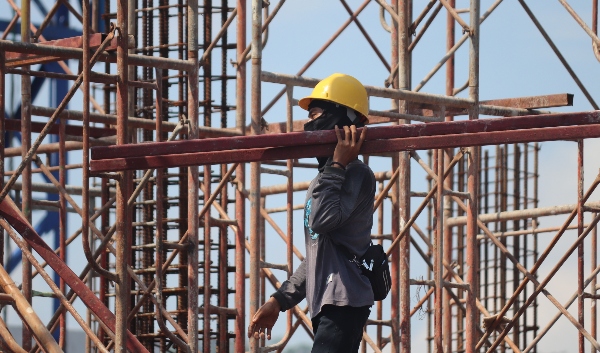
PASMA Training FAQs
What is a mobile access tower?
A mobile access tower, often referred to as a mobile scaffold tower, is used in construction to work on areas that are too high up. When built, they can be used to safely carry and use heavier equipment at set heights.
How old do you need to be to conduct PASMA training?
Those that take any type of scaffolding-based course will need to be at least 16 years old to participate. Anyone younger won’t be able to earn their PASMA certificate and photocard. The pass will last for 5 years from the date of issue.
Why do I need PASMA training?
PASMA training is needed because it ensures that mobile access towers are assembled by and used/under the supervision of trained personnel. Working at a height comes with a number of risks and potential hazards, meaning everything needs to be considered to avoid injury to yourself and others.
YOU MIGHT ALSO BE INTERESTED IN

